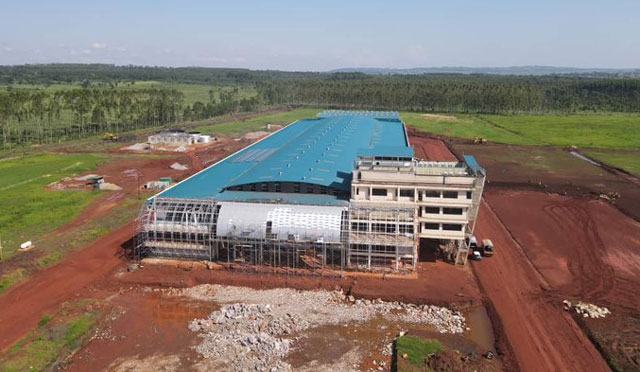
Luwero, Uganda | THE INDEPENDENT | The Ministries of Health and Education are due to handover all government-funded projects to the army’s engineering unit for implementation by the end of this month.
This is part of the directive of President Yoweri Kaguta Museveni earlier in the year, that the construction projects in the two ministries be undertaken by the National Enterprise Commission, NEC and implemented by the Uganda People’s Defense Forces (UPDF) Engineering Brigade.
The Ministry of Finance, Planning and Economic Development has now directed the two ministries to implement the directive, which has since been amended in response to concerns from donors and experts over it’s likely effects.
Since the president’s views were made public back in July, they have raised controversy from the public and the engineering fraternity over its objectives, expected impact on the industry and its legality.
There are fears that the directive by the president violates the national procurement laws that provide for competitive bidding for projects, but also that it is likely to crowd out private sector players.
In a November 8th, 2021 letter, the President directed the Ministry of Finance to process finances for the projects that are wholly funded by the government immediately. This also has seen the Public Procurement and Disposal of Assets Authority, PPDA and the ministry of finance, make adjustments in the procurement procedures to fit the president’s directive and avoid legal mistakes.
The Head of Communications at the PPDA, Chris Magoba says the directive of the President and of the finance ministry are being implemented in accordance with the laws. “The law is being followed. We have issued a circular to guide the entities that include the ministries and and Local governments (where the projects are located) on the subject,” said Magoba.
Now, the Ministry of Finance has in turn directed the Health and Education and Sports ministry to hand over the government funded projects to the UPDF Engineering Brigade or NEC by Nov 26 for implementation.
Regarding externally-funded projects, the minister says these will follow stipulated procedures. “Procurement for these projects in 2021/22 should commence immediately. Procurement should be done in line with procurement arrangements stipulated in the respective financing agreements and the Program Operational Manuals,” says Minister Matia Kasaija.
He however stressed that this arrangement only applies to ongoing development financed projects in the two sectors. “Any new projects in this category should comply with the directive of the President,” says Kasaija.
He said projects with ongoing contracts will continue to be executed under the existing agreements.
The same applies to projects jointly funded by the government of Uganda and development partners.
In his latest letter to the Treasury, the president insisted that future projects should comply with the new directives, hoping that ongoing talks with the donors favour his position.
The World Bank had recently expressed it’s concern over this directive saying it could affect future programs with Uganda as it is not in line with their Development aid guidelines. But President Museveni says the government will continue negotiating with them, though he insists the current guidelines and procedures for externally funded projects gives less value for money. “We cannot unilaterally impose our new policy directives on them. We shall discuss with them and ask them,” he says in his letter.
He wants the development partners to guide on the cost of their grants and loans on Uganda compared to what the country gets, saying a lot goes through the lengthy procurement processes, and mobilisation of funds by the private contractors, most of whom use commercial bank loans.
“If they say; yes two schools are better than one school for Uganda, then they work with us. If they say one school out of the grants, worse still, the money we have borrowed, is better than two schools, so that we support profits of private companies and banks, we shall note that answer and in time, and we know what we shall do,” he says. Museveni does not rule out rejecting the aid in future should he fail to get his way.
“If they still insist on the formula of ‘one school is better than two’ in the same way, we will discuss and decide collectively on whether we should tactically accept such parasitic logic or not,” the president said.
On the domestically funded projects he has made up his mind.
“On wholly government funded projects, there should be no discussion. Work with either UPDF or NEC. These ongoing projects, ask the Attorney General about the legality of changing the strategy. Those already awarded, we can let go,” he concluded.
*****
URN
 The Independent Uganda: You get the Truth we Pay the Price
The Independent Uganda: You get the Truth we Pay the Price





